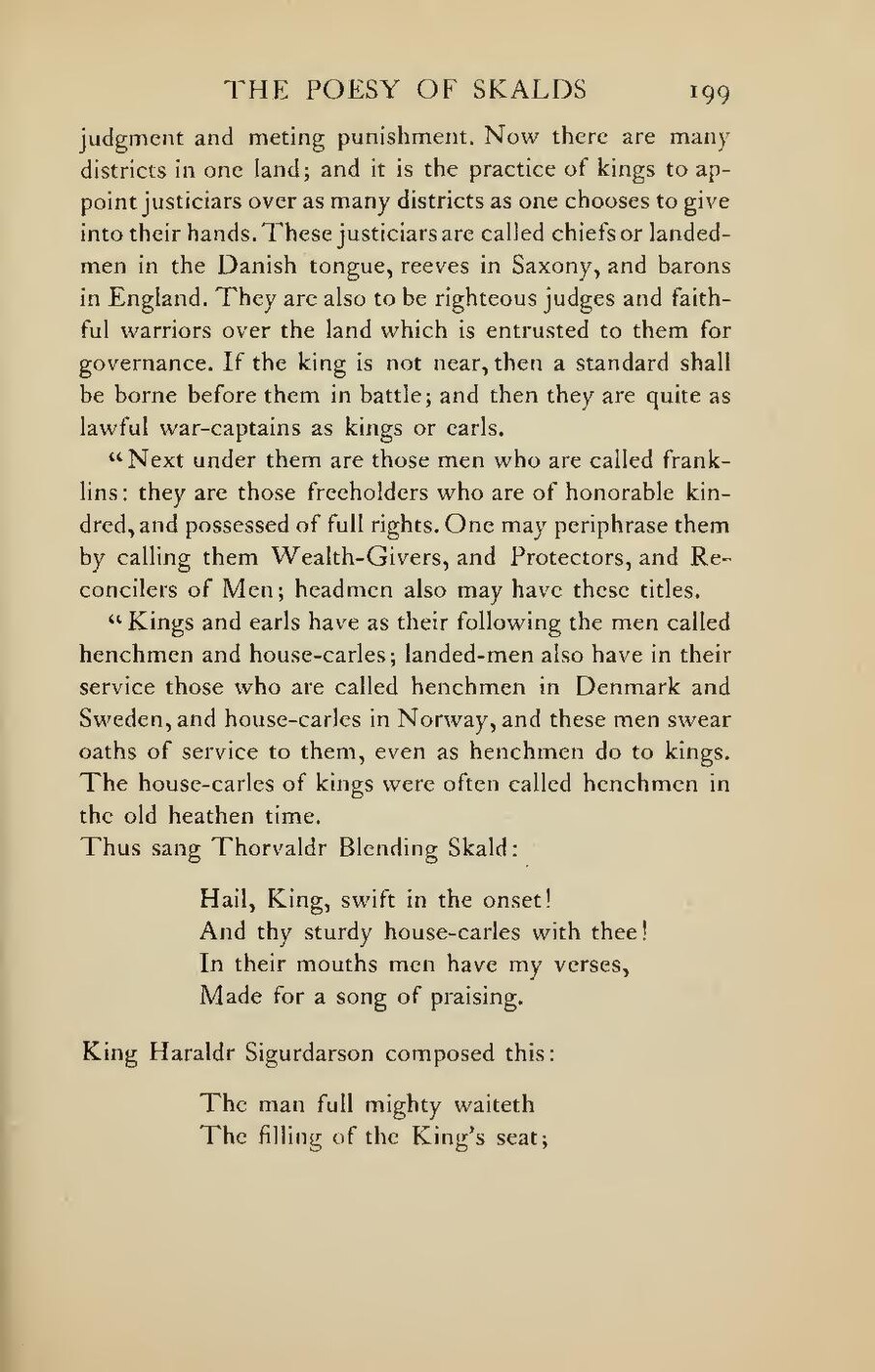judgment and meting punishment. Now there are many districts in one land; and it is the practice of kings to appoint justiciars over as many districts as one chooses to give into their hands. These justiciars are called chiefs or landed men in the Danish tongue, reeves in Saxony, and barons in England. They are also to be righteous judges and faithful warriors over the land which is entrusted to them for governance. If the king is not near, then a standard shall be borne before them in battle; and then they are quite as lawful war-captains as kings or earls.
"Next under them are those men who are called franklins: they are those freeholders who are of honorable kindred, and possessed of full rights. One may periphrase them by calling them Wealth-Givers, and Protectors, and Reconcilers of Men; headmen also may have these titles.
"Kings and earls have as their following the men called henchmen and house-carles; landed-men also have in their service those who are called henchmen in Denmark and Sweden, and house-carles in Norway, and these men swear oaths of service to them, even as henchmen do to kings. The house-carles of kings were often called henchmen in the old heathen time.
Thus sang Thorvaldr Blending Skald:
- Hail, King, swift in the onset!
- And thy sturdy house-carles with thee!
- In their mouths men have my verses,
- Made for a song of praising.
King Haraldr Sigurdarson composed this:
- The man full mighty waiteth
- The filling of the King's seat;
- Oft, I find, to the Earl's heels
- Throngs my host of house-carles.
